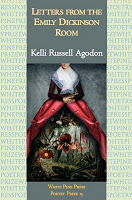Cheryl Snell's Blog, page 52
November 4, 2010
Happy Deepavali

The festival season is in full swing, with Divali (Deepavali, in the south) alight with fireworks, candles, and oil lamps.Deepa in Sanskrit means 'light' and avali means 'a row'.
Diwali is celebrated in north India in honor of Rama's return to Ayodhya after vanquishing Ravana; in Gujarat, to welcome Goddess Lakshmi. Bengalis worship Goddess Kali on this day. Firerackers are set off in the early hours of the morning. Children wake up to the so-called Atomic Bombs ushering in a day of sweets-eating (Thenkozhal, Ribbon Pakoda, Rava Ladu, and Almond Burfi) in brand new clothes -- after the dreaded oil-bath of course.
Here is an excerpt from my novel Rescuing Ranu that has to do with the celebration:
One night, long before dawn, Nela awoke to the sound of
fireworks. Someone else might have identified it as gunfire, but this
pop was distinctive, and immediately brought her childhood back to
her. It was Divali, the Festival of Lights celebrating Rama's
triumphant homecoming after killing a foe, the time of year when
she and Ramesh would rush out of the house after an excited, light
sleep, armed with Atomic Bombs, and Flowerpots. Arms full of
firecrackers saved for and selected weeks before, they would race to
the gymkhana across the street. No matter how early, there were
always children already there, waiting for the brother and sister
famous for balancing the flaming flowerpots on the vertical bars of
the chain link fence and setting off the fuse of the Chinese crackers.
Soon the night bloomed with burning flowers, hovering over whole
neighborhoods before dissolving.
Now Nela rubbed the sleep from her eyes and opened the front
door. There was Ranu, crouched in the fallow garden, setting off a
few tiny blazes. The path from the kitchen door to the plot had been
lined by diya pots, and a kolam made from rice paste drawn outside
the porch. How long it must have taken Ranu to do this! Nela ducked
inside before the child noticed her and the surprise was spoiled. She
went to her bookshelves. The child needed a Diwali gift! There was
no time now to make traditional sweets or buy new clothes, but a
book would do. Nela picked up her Gita and drew her finger along
the spine, rubbed her thumbs over the embossed cover. How could
she part with this piece of her history? Chitti had given the book to
her when she was still too young to understand it, although she
could have recited any story from it on the spot.
She took the volume out to Ranu. "Happy Diwali," she said. "This
was my auntie's book. You have seen it before, at the hut. Chitti gave
it to me, and now I give it to you." The child received the book with
open palms.
Published on November 04, 2010 05:16
November 2, 2010
November 1, 2010
Page Readers: Boosting Creativity
Thanks for this, Nanci!
Page Readers: Guest Blog by author Cheryl Snell on Boosting Crea...: "Today my guest, author Cheryl Snell shares her insights on boosting creativity. Thank you Cheryl for some great words of wisdom. I hope all..."
Page Readers: Guest Blog by author Cheryl Snell on Boosting Crea...: "Today my guest, author Cheryl Snell shares her insights on boosting creativity. Thank you Cheryl for some great words of wisdom. I hope all..."
Published on November 01, 2010 11:35
October 30, 2010
Three Book Recommendations
In the These-are-So-Going-on-My-Bookshelf category:

God, Seed is a beautiful hardcover book from Tebot Beach of art and poetry about the natural world. Award-winner Rebecca Foust's strong, well-crafted poems pulse with appreciation and concern for the future of the planet, and serve as an effective, musical counterpoint to Lorna Steven's delicate illustrations. Order the book here.

Letters from the Emily Dickinson Room by Kelli Russel Agodon. Kelli won the 15th Annual White Pine Poetry Prize with this fine poetry collection of witty, engaging,and elegant work. Order from her website,
http://agodon.com/books
or Amazon

Refracted by Sheila Deeth is a novel with imagination and scope. It's science fiction told in poetic language,a story infused with religion to explore big themes delivered in a subtle, original voice. It can be ordered here or from the Kindle Store

God, Seed is a beautiful hardcover book from Tebot Beach of art and poetry about the natural world. Award-winner Rebecca Foust's strong, well-crafted poems pulse with appreciation and concern for the future of the planet, and serve as an effective, musical counterpoint to Lorna Steven's delicate illustrations. Order the book here.

Letters from the Emily Dickinson Room by Kelli Russel Agodon. Kelli won the 15th Annual White Pine Poetry Prize with this fine poetry collection of witty, engaging,and elegant work. Order from her website,
http://agodon.com/books
or Amazon

Refracted by Sheila Deeth is a novel with imagination and scope. It's science fiction told in poetic language,a story infused with religion to explore big themes delivered in a subtle, original voice. It can be ordered here or from the Kindle Store
Published on October 30, 2010 04:41
October 29, 2010
How to Fill a Room
My husband just told me a story one of his grade school teachers told him:
A father showed his two sons the house he had just built. "You each have your own room," he pointed out. The rooms were bare, so the father gave a few rupees to the sons, saying, "You may spend this much to fill your rooms." The eldest son traveled far to buy a large amount of hay. He bundled it into stacks, and pulled it home in a cart. He arranged the stacks in his room. Satisfied that he had done what his father asked of him, he looked to see how his brother was doing. As he peeked into the room, he saw that his brother had furnished his space with just a table, chair, and lamp. He was about to chide him for not following their father's instructions, when the flame from the lamp illuminated the face of the father, who had been in the room all the while. When the younger son began to pray, his voice filled the whole room.
A father showed his two sons the house he had just built. "You each have your own room," he pointed out. The rooms were bare, so the father gave a few rupees to the sons, saying, "You may spend this much to fill your rooms." The eldest son traveled far to buy a large amount of hay. He bundled it into stacks, and pulled it home in a cart. He arranged the stacks in his room. Satisfied that he had done what his father asked of him, he looked to see how his brother was doing. As he peeked into the room, he saw that his brother had furnished his space with just a table, chair, and lamp. He was about to chide him for not following their father's instructions, when the flame from the lamp illuminated the face of the father, who had been in the room all the while. When the younger son began to pray, his voice filled the whole room.
Published on October 29, 2010 16:49
Likeable Characters
Writers, when you're developing a character with sensibilities foreign to your own, does the creative process itself promote empathy?
My character Amma in Shiva's Arms was modeled on a traditional Hindu mother-in-law of an American "unsuitable bride." At first, I had only an incomplete understanding of the attitudes with which I used to construct her, but as I learned how to illuminate and animate her, I began to inhabit her -- and develop empathy for her.
A character incorporates its creator, at least a blurred and altered version. It's paradoxical, isn't it, that for a writer to disappear into her character, she sometimes has to go far away from that self. In order to think through the character and its demands, it's important to succumb to that "estranging kinship," to use Richard Powers' phrase.
Psychological distancing was a useful tool in re-framing Amma's true desires -- one aspect of empathy. What did she really want? The reader must discover what she thought she needed and the consequences of that. Liking her seems largely beside the point. My unlikeable character had convictions so strong that she was willing to sacrifice everything for them.
This comment, posted on another site, sparked this response, which I thought I'd share with you:
Empathy - A much abused word, I feel, these days - used in a fairly superficial context and almost interchangeable with 'sympathy'.
Our empathy is not the sole preserve of those to whom we are closest and those we love best. Occasionally, our empathy is even deeper with those towards whom we have a (natural?)antipathy. We can read them in more accurate detail. And it can be unnerving to contemplate how this reflects upon us.
You have a lot of grace towards your MIL character, but I wonder if part of your instinct in defending her so staunchly is that of an author - a creator - confronting criticism that doesn't belong to the context of the work. We all like a heartwarming story that carries us away, but serious fiction cannot be dealing with the wholly likeable. We need a discomfiture that restores us to ourselves. We need to trespass into alien mindsets. The virtue is not necessarily in the resolution of the story, but of the reader saying thankfully:"There but for the grace of God, go I," and breathing a sigh of relief.
My character Amma in Shiva's Arms was modeled on a traditional Hindu mother-in-law of an American "unsuitable bride." At first, I had only an incomplete understanding of the attitudes with which I used to construct her, but as I learned how to illuminate and animate her, I began to inhabit her -- and develop empathy for her.
A character incorporates its creator, at least a blurred and altered version. It's paradoxical, isn't it, that for a writer to disappear into her character, she sometimes has to go far away from that self. In order to think through the character and its demands, it's important to succumb to that "estranging kinship," to use Richard Powers' phrase.
Psychological distancing was a useful tool in re-framing Amma's true desires -- one aspect of empathy. What did she really want? The reader must discover what she thought she needed and the consequences of that. Liking her seems largely beside the point. My unlikeable character had convictions so strong that she was willing to sacrifice everything for them.
This comment, posted on another site, sparked this response, which I thought I'd share with you:
Empathy - A much abused word, I feel, these days - used in a fairly superficial context and almost interchangeable with 'sympathy'.
Our empathy is not the sole preserve of those to whom we are closest and those we love best. Occasionally, our empathy is even deeper with those towards whom we have a (natural?)antipathy. We can read them in more accurate detail. And it can be unnerving to contemplate how this reflects upon us.
You have a lot of grace towards your MIL character, but I wonder if part of your instinct in defending her so staunchly is that of an author - a creator - confronting criticism that doesn't belong to the context of the work. We all like a heartwarming story that carries us away, but serious fiction cannot be dealing with the wholly likeable. We need a discomfiture that restores us to ourselves. We need to trespass into alien mindsets. The virtue is not necessarily in the resolution of the story, but of the reader saying thankfully:"There but for the grace of God, go I," and breathing a sigh of relief.
Published on October 29, 2010 06:00
October 28, 2010
Name-Calling
In the first novella of Paul Theroux's The Elephanta Suite, he introduces the Blundens. Already I see them blundering. Should I? What's in a name anyway, when it comes to naming characters in fiction? I collected some do-and-don'ts to see how the names in Shiva's Arms stack up:
Do: have a name may say something about the character's parents.
In my characters' neighborhood, the father's name and family home is incorporated into the child's name. So my boy Ramesh, whose father is Sambashivan from Trichur, is called T. Sambashivan Ramesh.
Do: choose a name to suit the character's personality, who they are, where they come from or where they are going.
Shiva fits the bill here. The matriarch of the family is named for the god of creation and destruction, whose many arms embrace and repel simultaneously. The name underscores the character's culture shock, her resistance to change, and foreshadows her reconciliation with her daughter-in-law.
Do: let a name give clues about your character's background.
The Sambashivans are South Indian Brahmins, and the name reflects that. Ask anybody.
Don't: fill your story with names that sound alike or that start with the same letter.
Hmmm. We've got Ram, Alice, Shiva, Nela, Nigel, and Sam. The minor characters are all of the Venkatarajapuramgovindaswamyshankaranarayan variety
Do: alternate lengths of names.
Done! See above.
Do: have a name may say something about the character's parents.
In my characters' neighborhood, the father's name and family home is incorporated into the child's name. So my boy Ramesh, whose father is Sambashivan from Trichur, is called T. Sambashivan Ramesh.
Do: choose a name to suit the character's personality, who they are, where they come from or where they are going.
Shiva fits the bill here. The matriarch of the family is named for the god of creation and destruction, whose many arms embrace and repel simultaneously. The name underscores the character's culture shock, her resistance to change, and foreshadows her reconciliation with her daughter-in-law.
Do: let a name give clues about your character's background.
The Sambashivans are South Indian Brahmins, and the name reflects that. Ask anybody.
Don't: fill your story with names that sound alike or that start with the same letter.
Hmmm. We've got Ram, Alice, Shiva, Nela, Nigel, and Sam. The minor characters are all of the Venkatarajapuramgovindaswamyshankaranarayan variety
Do: alternate lengths of names.
Done! See above.
Published on October 28, 2010 12:46
October 27, 2010
Ghosts & Goblins
It's that spooky time of year again, so gather 'round the fire while the neighborhood goblins roam the streets in search of candy, and I will tell you a ghost story, from India,1914.
Boo!
Boo!
Published on October 27, 2010 16:24
October 25, 2010
October 23, 2010
Sviatoslav Richter plays Rachmaninoff Concerto No. 2 (6/6)
Richter rocks! Tim Buck reminded me of this recording today.Doesn't it make you want to hear the whole concerto?
Published on October 23, 2010 07:44



